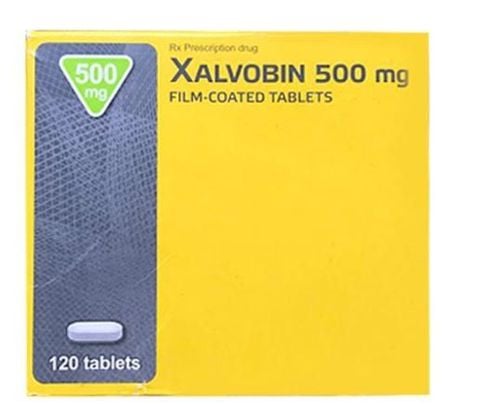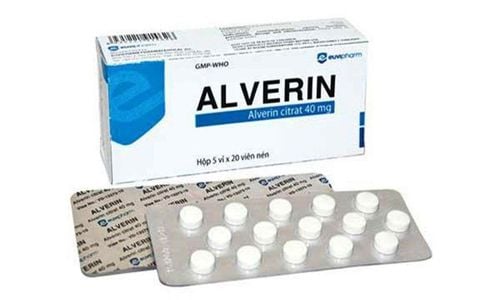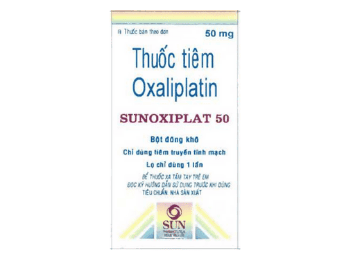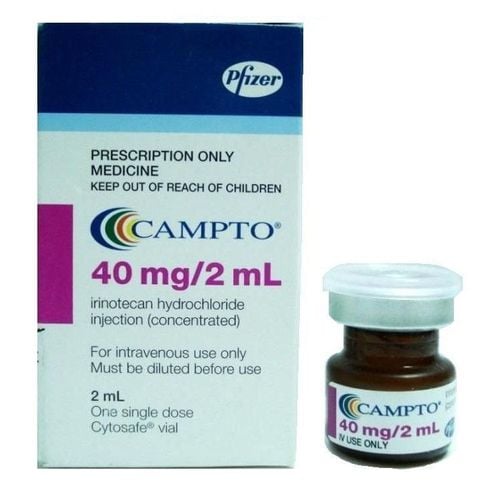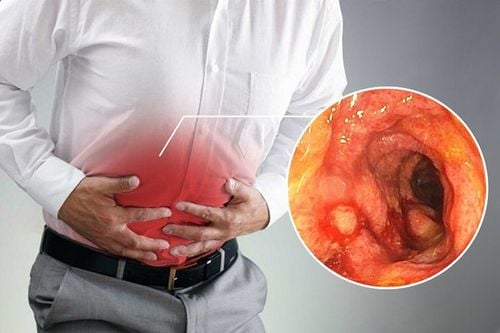This is an automatically translated article.
Inflammatory bowel disease is a chronic inflammation of the colon. This inflammation can occur in any part of the colon. When you have a disease, you need to take medicine and have a suitable diet and activity to control the disease well.
1. What is colitis?
Ulcerative Colitis (UC) is a chronic disease that causes inflammation of the intestines. Ulcerative colitis can develop at any age, but it is most often diagnosed in people over the age of 30.
When you have ulcerative colitis, the body attacks the lining of the colon like a foreign object. This leads to ulcers in the lining of the colon that are painful. In addition, this condition can lead to a host of unpleasant symptoms, affect your life, and increase your risk of colon cancer. Therefore, if you are diagnosed with the disease by your doctor, you need to have regular colonoscopy.
Some possible symptoms of ulcerative colitis:
Abdominal pain and feeling abdominal cramps. Gastrointestinal disorders : Diarrhea or constipation Bleeding or increased discharge from the rectum. Anemia: Ulcers cause chronic bleeding that makes you tired, lightheaded, dizzy, pale skin and mucous membranes. Joint pain, club fingers. Most treatment for ulcerative colitis (UC) is medication, combined with dietary changes. However, it only helps to reduce symptoms, improve the quality of life of the patient, but often does not completely cure the disease. In some cases it develops into exacerbations and the ulcer spreads to other areas of the colon, so the doctor may recommend surgical intervention.
2. Taboos for Inflammatory Bowel Disease
Colitis makes your intestines more sensitive. Therefore, you should pay attention to avoid the following:
2.1.Too much medicine When sick, not everyone can control well with drugs, each individual has different responses. Sometimes, taking a medicine to treat a disease also causes your body to react to that medicine and cause a flare-up of the disease without you even knowing it.
So, when you take many prescribed drugs but the results are not satisfactory, you should use less and try different combinations to find the one that is more suitable for you.
2.2.Perform surgery when not necessary Surgery is only indicated when you have the right treatment without improving symptoms of ulcerative colitis (UC) causing serious complications. When you have surgery, you have to undergo many surgeries and are performed several weeks apart, this makes your body tired, and it will remove all of your colon and rectum. Your symptoms should improve after surgery, but because the small intestine has to replace the functioning part of the colon, you may also experience some digestive problems.
Therefore, in addition to the mandatory indications, please try to consider carefully before performing surgery.
2.3.Ignore mental health Many people know that ulcerative colitis affects more than the inside of the digestive tract. However, very few people care about mental health after being diagnosed with colitis. Statistically, the prevalence of depression is higher among people living with UC than with other illnesses and the general population.
When sick, the patient always has anxiety, panic because he doesn't know how his day is, is there any pain? Do you need to go to the bathroom a lot? As the pain persists, blood loss makes the patient even more tired.
Therefore, never ignore mental health when you are sick and seek professional help when needed. Share what you worry about, feel tired with your family.
2.4. Hesitant to share about colitis People with colitis often have to go to the toilet many times, but it is not always convenient to use a separate toilet. People who do not understand your condition will feel uncomfortable if you use the toilet frequently. Therefore, the best way to get sympathy from people is to speak frankly about your health problems and find ways to share information about colitis to more people.
2.5. When you're diagnosed with ulcerative colitis, you need to pay special attention to your diet, as certain foods cause irritation and flare-ups. You should eat a diet of lean meats, cooked foods, white carbs (such as simple pasta, rice and bread), properly processed fruits and vegetables, and drink plenty of water. In addition, you should also limit foods high in soluble fiber, spicy foods, caffeinated water, fried foods, because they are difficult to digest and irritate the lining of the digestive tract.
Changing your diet is an important adjustment, but it can have a big impact on your life. If you find it difficult, go to a medical facility to see a nutritionist for advice on a diet for people with ulcerative colitis.
2.6. No regular health check-up When you have ulcerative colitis, you have a high risk of cancer and some complications of the disease also occur such as ulcer causing bowel perforation, anemia... Therefore, you need Conduct regular health check-ups to detect the risk of complications early. Even if you feel stable, your doctor still recommends a colonoscopy to screen for colorectal cancer as early as possible. Therefore, if you skip the regular check-up is a mistake.
Hope the information in the above article helps you understand more about ulcerative colitis and avoid taboos to be able to build a healthy diet, lifestyle, and effective treatment.
Please dial HOTLINE for more information or register for an appointment HERE. Download MyVinmec app to make appointments faster and to manage your bookings easily.
Reference source: healthline.com



